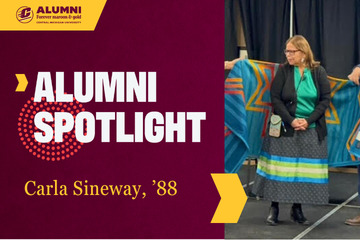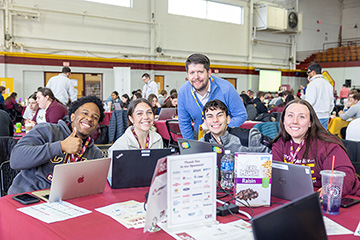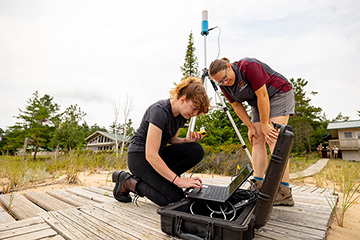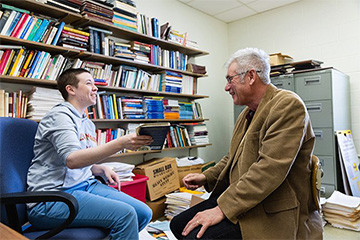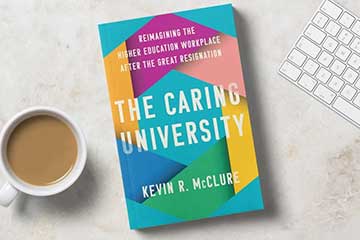Reliving history through live-action gaming
Role playing brings past to life for students
Mia Roby took a unique approach to one of her courses this semester.
“I’m treating it like Dungeons and Dragons to an extent,” said Roby, a first-year student from Cadillac.
There’s no spellcasting in the history class's syllabus. No hit points or saving throws, either. Just an approach to teaching history in which Central Michigan University students reenact history by taking on roles of people who lived it.
This semester, both of History, World Languages & Culture faculty member Kathy Donohue’s history courses role-played the international community’s response to the Rwandan genocide in 1994.
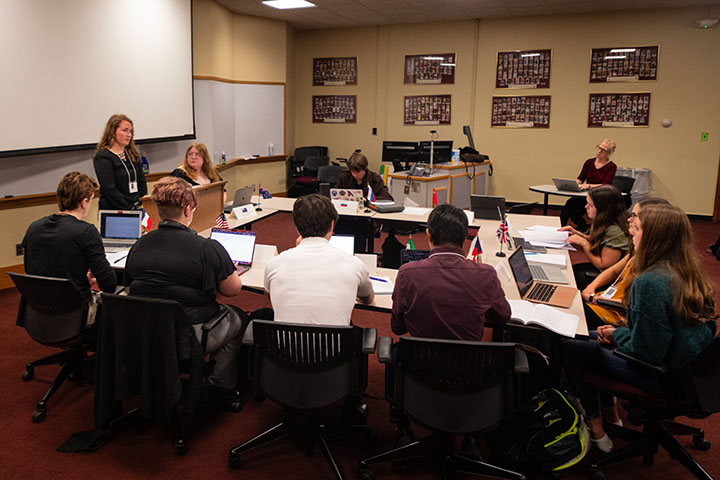
Most of the students played diplomats from United Nations Security Council member nations.
Roby assumed the role of Alison des Forges, a representative of Human Rights Watch, a non-governmental organization that lobbied for a more aggressive international response.
One of her victory conditions was successfully pressing the United Nations Security Council to beef up its peacekeeping forces. Creating a sense of competition gives students an incentive to dive into their roles, Donohue said.
It was a tall order for Roby. In 1994, in response to the murder of several Belgian peacekeepers in Rwanda, the U.N. scaled back its presence. Because of the way history unfolds, some players start with a much more challenging path to victory, Donohue said.
Roby’s character scored a small victory during the second week of gameplay. The Security Council approved jamming a Hutu radio station that broadcasts hate messages throughout the genocide. In real life, the United States considered and rejected a proposal to jam the station on its own.
The difference is a matter of hindsight and real time decision-making. At the time, incomplete information was trickling out of Africa. Not everyone agreed that a genocide was underway. Some nations argued it was a civil war, not the U.N.’s purview. Today, we know what happened.
In addition, not every player gets the same information. During the genocide, some diplomats were given additional information to reflect that they had more resources. United States Ambassador Madeleine Albright was one. Donohue said she provided those players with additional information.
Students argued as if it were the real Security Council. Roby said it can sometimes get tense.
Roby’s des Forges only observed that. Her role was purely advocacy. During one session, she and a representative from the International Committee of the Red Cross participated in a “talk show.” Roby disputed the idea of a civil war.
“When we have 67,000 deaths in a week, how can we not classify that as a genocide,” she said.
The game started the fourth week of the semester, following three weeks of preparation that Donohue said was intensive. Students were introduced to their characters and the history they were reliving.
They read books and watched films about the genocide. It’s a lot of work prepping for the game, Donohue said.
Roby called the preparation period rewarding. The immersion in history helped bring it to life.
“It drives me crazy that this wasn’t taught to me in high school,” she said.
